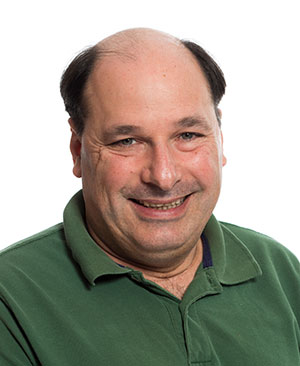This interview was conducted at the request of Forbes Russia, which will publish it in translation this summer.

Professor Kevin Dunayer
About Professor Dunayer
Kevin Dunayer is Assistant Professor of Theater and Event Production at George Mason University. He received his BA from University of North Carolina – Asheville and MFA from California Institute of the Arts. Professor Dunayer has designed sound for over 300 productions at major American theaters, including Alley Theatre, Dallas Theatre Center, GeVa Theatre, LA Theatre Works, Syracuse Stage, and the Colorado Shakespeare Festival, where he was Resident Sound Designer for 24 years. Sound Engineer credits include: The American Image Awards, Director’s Guild Awards, President Clinton's 50th Birthday celebration, with Whoopi Goldberg; and the 1997 Grammy & Rhythm and Blues Awards. Professor Dunayer was recognized as a Teacher of Distinction by George Mason’s Center for Teaching & Faculty Excellence in 2016. He was the assistant director of Mason’s Event Services for many years before switching to teaching full-time. He now teaches Sound Design Fundamentals and Advanced Sound Design for the School of Theater, and Event Technical Production and Event Logistics for the School of Sport, Recreation and Tourism Management.
Since I was a kid, being part of theater was always really important to me. It wasn’t until I got a little older that I realized that there was so much more to theater than just performing. I realized that I really love sound. Once I understood that there's an art to this—that I could tell stories through music and sound–I knew that this was something I knew I wanted to do as a career.
Professor Kevin Dunayer
What skills and type of person does it take to be a Sound Designer or Event Planner?
Anybody who wants to tell a story can do well in this field. Theater and events are really the same kind of thing because you're basically there to tell the story. But good sound designers and events planners are really good storytellers who can also plan well and execute. You also need to be a really good people-person who can collaborate, and you have to be able to think on your feet and be flexible. Also, you need to be reliable and show up on time. The only difference between theater and events is whether you've got an hour to make decisions, or twenty minutes, or maybe five.
What previous experience is required to study Sound Design or Event Technical Production?
Our students come from all over, with all kinds of backgrounds and interests. I'm okay with students not having any real experience in the field, as long as they can think like an artist. For me, it's about the art. The technology is secondary, but the art is what's important.
What do you mean when you talk about “Events Planning”?
An event can be as simple as presenting a statue, or plaque on a tree, or as big as the Olympics. It’s all of those things. Whatever it is, how do you present that? How you deal with whatever technology elements you want to add or not? How you present that is all about storytelling. A lot of events planners don't understand the storytelling part. They're really good at planning. They're really good at figuring, “Okay, I need 50 chairs here. I need a screen there.” Well, let's talk about why it's happening. Let's talk about the story.
If you want to collaborate, you need to be able to communicate an idea. Good event planners should ask themselves, “What is the story we want to tell?” This is what I make our students do. I go through the whole process of designing what elements are going to be in that event, even if they're technical elements. As a designer, I'm going to collaborate and speak with the other designers, so we can figure out how we're going to tell a story together.
What drew you to teaching?
I love the interaction. I've had many students who think of sound as technology, and microphones, and equipment, and that's it. I talk to them about the art of sound and watch their reaction to that. They slowly change and start to understand. Often, they’ll come in saying, “I have my computer, and I have all this equipment.” That's wonderful. But let's talk about the process, because–guess what?–five years from now, if you don't understand the process of creating the art of sound, that technology may not be what you're going to use next time. Who knows what we're going to be using in 10 years?
I have students this year that have gone through this process. I get all teary because I know they're going to do really well, and they made that transition from being good sound technology person or technician to an artist, and it's when they can do both that–as I say–they’re no longer a “Meter Reader.” They’ve made the transition to “Golden Ears.”
How can George Mason University students gain skills in Sound Design or Event Production?
At Mason there are plenty of opportunities. Our students can major in Theater or any other area [but then] minor in Event Technical Production. They can work on theater productions for the School of Theater, and they can work for Events Services to make money. This gives students three related environments to learn from: the classroom, theater production, and practical experience with the event industry when they work on events here on campus. Through Events Services, we’ve produced events for Barack Obama and Hillary Clinton. Working for Events Services gives our students really good training and another professional avenue.
Professor Dunayer was interviewed by Steven Harris-Scott (Assistant Director of Graduate Education and Faculty Affairs at INTO Mason) and Kristin Johnsen-Neshati (Associate Professor of Theater/Assistant Dean, CVPA).
